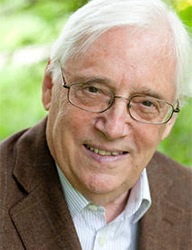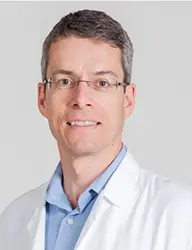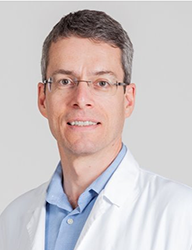
John WALKER
FRS, FMedSci,
Nobel Laureate for Chemistry
Chairman

John WALKER
FRS, FMedSci,
Nobel Laureate for Chemistry
Chairman
Professor Sir John Walker FRS studied chemistry at St Catherine’s College, Oxford. After periods of study and research at the University of Wisconsin, USA, and The Pasteur Institute in Paris, in 1974 he joined the Laboratory of Molecular Biology of The Medical Research Council (MRC) in Cambridge, where he helped to discover overlapping genes in bacteriophages, and established their presence in human mitochondrial DNA. He identified three of the thirteen proteins encoded in human mitochondrial DNA and established details of the modified genetic code in human mitochondria. He also discovered the two eponymous protein sequence motifs involved in binding nucleotides in a wide range of proteins. They are the most widely dispersed sequence motifs in the entire biological kingdom.
In Cambridge, he developed his interest in how energy in food is transferred, in the mitochondria inside the cells that constitute our bodies, into the molecule ATP (or adenosine triphosphate), the energy currency of life. In 1982, he defined the basic threefold repeated structural fold that defines the 53 members of the family of mitochondrial transport proteins in humans, amongst them the protein that transports ATP, made in the mitochondrion, into the cellular cytoplasm thereby making it available as a source of energy for biological functions such as replication of DNA, RNA and proteins, and the functioning of muscles and the brain. In collaboration with F. Palmieri, he went on to contribute to the identification of the biochemical functions of fifteen members of this family, including the aspartate-glutamate exchanger where human mutations are associated with type II citrullinemia.
In 1994, his work on the complex molecular machine in the mitochondria, known as the ATP synthase, led to the realisation that the energy released by the oxidation (controlled burning) of dietary sugars and fats is coupled by a mechanical rotary mechanism to generate the 60 kg of ATP that each of us makes daily to sustain our lives. This work led to the award of the Nobel Prize in Chemistry in 1997. In the 1990s, he also defined the protein composition and the localisation of the proteins in another huge molecular assembly in mitochondria, known as complex I, which is also involved in biological energy conversion, thereby providing essential foundations for more recent investigations by colleagues on its structure and function.
In 1998, he was appointed Director of the MRC Dunn Human Nutrition Unit in Cambridge, which became the MRC Mitochondrial Biology Unit in 2008. Since 2013 he has been Director Emeritus. Here he continues to delve deeper into the fundamental basis of energy conversion in biology, and works to use that knowledge for medical benefit. He is a Fellow of the Royal Society, and in 2012, he received its Copley Medal, the UK’s highest scientific accolade. He is also a Fellow of the Academy of Medical Sciences, a Fellow of Sidney Sussex College, Cambridge, an Honorary Fellow of St Catherine’s College, Oxford, a Foreign Member of L’Accademia Nazionale dei Lincei, of the Royal Netherlands Academy of Arts and Sciences, and of The Royal Society of New Zealand, and a Foreign Associate of the US National Academy of Sciences.

Barbara YU
Member

Barbara YU
Member
Barbara believes strongly in the long-term vision of finding a cure for citrin deficiency by bringing together world leading experts to work collaboratively on it, and to provide support for patients globally with this rare condition. It is with such belief that she co-founded Citrin Foundation with her husband Yen How Tai. Together, they have provided all the funding for the Foundation.
Barbara Yu is also the co-founder and co-CEO of YH2 Capital, an investment firm that adopts a long-term investment approach. The firm's investment return has constantly outperformed the market since its inception.
Prior to founding YH2 Capital, Barbara was the Head of Asia and Partner of Eton Park Capital Management from 2006 to 2010 and was responsible for Eton Park's public and private investments in Asia. In her role, Barbara founded, built and managed the Asia portfolio business of Eton Park since its inception in 2006.
Prior to joining Eton Park in 2006, Barbara spent five years at Goldman Sachs in Hong Kong where she rose to the position of the Head of the firm's Principal Strategies Group in the Asia Pacific region. The Group encompassed the proprietary investing business of the equities division at Goldman. Prior to joining Goldman Sachs, Barbara worked at Morgan Stanley in New York and Hong Kong, where she focused on mergers, acquisitions and restructuring.
Barbara graduated from Magdalene College, Cambridge University, with a BA in Law, double first-class honors. Barbara was awarded the N. Diaz Scholarship for Law and Norton Rose Prize for Commercial Law. She was also a Jardine Scholar which provided a full scholarship for her undergraduate study.

Yen How TAI
Member

Yen How TAI
Member
Yen How Tai is the co-founder and co-CEO of YH2 Capital, an investment firm that adopts a long-term investment approach. Prior to founding YH2 Capital, Yen was an entrepreneur and investor. In 1999, he founded an online real estate company and grew it to be the biggest online property business in Hong Kong. After selling the business, Yen branched out into real estate investment and development in Shanghai, Beijing, Hong Kong and Singapore.
Before becoming an entrepreneur, Yen worked at Investor AB’s private equity arm in Asia. Yen started his career as a management consultant at McKinsey & Company’s in Greater China office, where he advised governments and leading multinational corporations in China, Japan and Southeast Asia, in the telecommunications, consumer products, information technology, government policies and retail sectors.
Yen graduated from Harvard University with a BA in Economics. Yen was an ASEAN Scholar.

Johannes HÄBERLE
Member

Johannes HÄBERLE
Member
